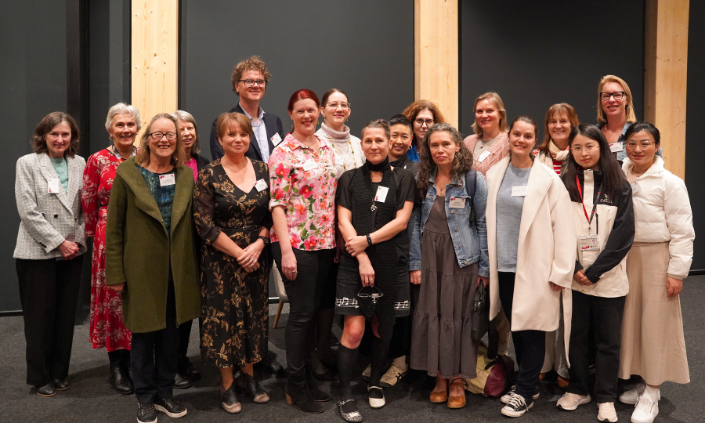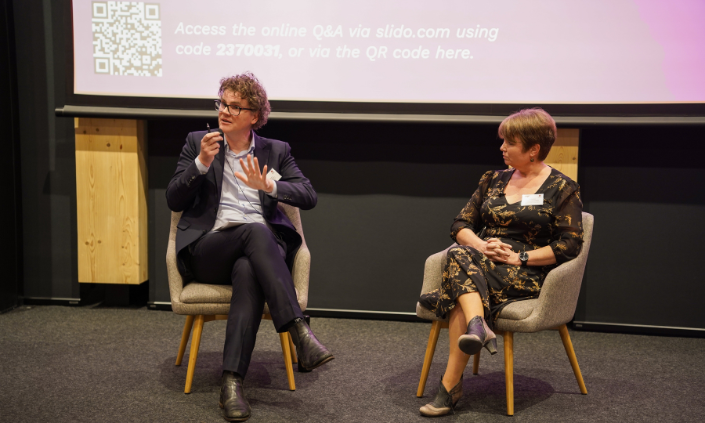Closing gaps in early childhood education and care
The 2025 June Wangmann Memorial Lecture called for reforms that integrate care, education and community to tackle 'childcare deserts'.

Macquarie University’s Early Childhood Education Research Centre hosted its annual June Wangmann Memorial Lecture, which honours the pioneering legacy of June Wangmann in advancing early childhood education. Professor Sheila Degotardi welcomed participants in person and online before introducing keynote speaker Professor Peter Hurley from the Mitchell Institute.
Professor Hurley explored the challenges and causes behind the issue of ‘childcare deserts’ within Australia’s early childhood education and care (ECEC) system. He highlighted that families in outer suburban, regional and disadvantaged communities face significantly less access to services. He described the sector as being “at a crossroads” and urged policymakers and the sector to move beyond a focus on price and availability towards models that integrate care, education and community support.
The discussion that followed, facilitated by Professor Degotardi, explored potential solutions. Audience questions prompted conversation about:
- Developing integrated community hubs that co-locate early learning with family health, family support and social services to address compounded disadvantage.
- Exploring flexible and diverse service models, including supported playgroups or family-led learning pathways, to engage families who feel excluded from formal care.
- Incentivising providers to establish services in low-access areas through targeted government investment, rather than relying solely on market forces.
- Strengthening the role of local government and community organisations in planning and supporting ECEC delivery.

Professor Hurley noted that some state initiatives, such as new government-built centres and school co-location strategies, represent early steps toward these solutions. Both Professors Hurley and Degotardi emphasised the importance of combining data-driven planning with community engagement to ensure future expansion delivers equitable access and meaningful outcomes for children.
The event concluded with networking and refreshments for its in-person participants, which facilitated continued discussion about creating a more inclusive and sustainable ECEC system. A recording of the event is now available.